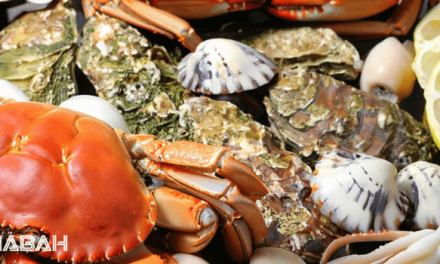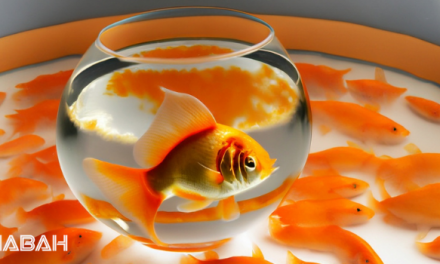As a Muslim consumer, I have often found myself questioning the halal status of certain foods, particularly when it comes to seafood. In this article, I aim to shed light on the halal status of crayfish, debunking common myths and providing factual information to help fellow Muslims make informed dietary choices.
Islamic Scholars Clash Claws Over the Halal Standing of Crayfish
Crayfish are freshwater crustaceans that resemble small lobsters. They are eaten in several cuisines around the world and enjoyed for their sweet, succulent meat. However, there is some debate within Islamic jurisprudence over whether crayfish meets the requirements for permissibility according to Quranic guidelines on lawful and prohibited foods.
The Quran states:
“Lawful to you is game from the sea and its food as provision for you and the travelers, but forbidden to you is game from the land as long as you are in the state of ihram. And fear Allah to whom you will be gathered.” (Quran 5:96)
This verse establishes the broad permissibility of seafood while prohibiting land animals. However, the specifics of what constitutes halal seafood has been elaborated on in the Hadith and Islamic scholarship. Several criteria are used to determine if a sea creature is halal, including:
- It must live its entire life in the water
- It must have scales
- It must not be harmful to health
The scholarly opinions diverge on whether crayfish meets these qualifications. This article will analyze the evidence and arguments on both sides of this debate on the halal status of crayfish.
Differing Opinions on Crayfish in Islam
There are conflicting views among Islamic scholars and jurists on whether crayfish is halal or haram to eat. The debate centers around a few key points.
Views that crayfish is halal
Some scholars argue that crayfish is permissible to eat in Islam. Their reasoning includes:
- Crayfish spends its entire lifecycle in the water. According to Darul Uloom, “The principle is that any animal that lives its entire life in water is permissible.”
- Crayfish has an exoskeleton which they argue serves the same purpose as fish scales. Per Ask Mufti, “their hard shell could be considered a form of scale.”
- Crayfish is not harmful to human health, unlike some prohibited sea creatures.
Views that crayfish is haram
On the other side, some jurists prohibit the consumption of crayfish. Their arguments include:
- Crayfish lacks true fish scales, instead having an exoskeleton. According to IslamQA, only fish with “true scales” are halal.
- The anatomy and appearance of crayfish resembles prohibited shellfish like lobster and crab.
- Some point out that non-scaled sea creatures are explicitly prohibited in Hadith.
The evidence and analogies used on both sides will be analyzed in the next section.
Analysis of Evidence and Arguments
There are several key points of evidence and analogies made by scholars on both sides of the crayfish halal debate that require deeper analysis.
Discussion of crayfish anatomy, taxonomy, and habitat
-
Crayfish are crustaceans belonging to the order Decapoda, which includes crabs, lobsters, and shrimp. This taxonomic classification is used by some scholars to argue that crayfish resemble prohibited shellfish.
However, others counter that taxonomy alone cannot determine permissibility. As Ask Mufti states:
“The ruling is not based on the taxonomy and biology but the scholars look at the visible attributes of the animal.”
-
Despite having an exoskeleton instead of scales, crayfish spend their whole life cycle in fresh water. This distinguishes them from marine crustaceans.
Evaluation of analogies to crab and shrimp
-
IslamQA prohibits crayfish based on an analogy to crab and lobster:
“With regard to lobster and crayfish… they are not permissible because they do not have scales.”
-
However, others argue crayfish resembles shrimp, which is halal. Per IslamWich:
“Crayfish are almost identical to freshwater shrimp, which are Halal.”
-
The strength of these analogies needs to be weighed.
Examination of proofs
-
The key Hadith prohibiting shellfish is used to argue against crayfish. But others say the Arabic terms don’t apply clearly to crayfish.
-
Some point out that major schools permit crayfish, indicating its halal status. But the reasoning hasn’t achieved full consensus.
Implications
The question of whether crayfish is halal remains contentious among Islamic scholars. There are reasonable points on both sides of the debate. However, a few conclusions can be drawn:
- The evidence seems to slightly favor the permissibility of crayfish:
- It lives its whole life in water
- No clear prohibition in Quran or Sunnah
- Major schools permit with conditions
- But the reasoning is not definitive and analogies made can go both ways
- Ultimately, the lack of scholarly consensus leaves room for differing views
Ramifications for Muslims
- Muslims wanting clear guidance may avoid crayfish pending stronger consensus
- Those comfortable with existing evidence may permit crayfish consumption
- Need for caution and restraint either way, as prohibition is still argued by some
Need for further analysis
- More detailed study needed of crayfish physiology as proof
- Linguistic analysis of key Arabic terms required
- Views of all schools should be weighed carefully
Is Crayfish Halal – Frequently Asked Questions
Yes, crayfish is generally considered halal. Crayfish, also known as crawfish, is a type of crustacean that is part of the seafood family. In Islamic jurisprudence, seafood in general is regarded as halal, including crayfish, provided it is prepared in a halal way.
Can Muslims eat crayfish?
Yes, Muslims can eat crayfish as it falls under the category of halal seafood. However, it is essential to ensure that the crayfish is sourced from a halal supplier and prepared in accordance with Islamic dietary laws.
Is crayfish halal in Islam?
Yes, crayfish is considered halal in Islam. Islamic dietary guidelines permit the consumption of seafood, including crayfish, as long as it is halal-sourced and prepared in a permissible manner.
Are crayfish and lobster the same thing?
No, crayfish and lobster are not the same thing. While both crayfish and lobster are crustaceans, they differ in various characteristics such as size, habitat, and appearance. However, from the perspective of halal dietary laws, both crayfish and lobster are considered halal seafood.
What is the ruling on eating crayfish according to the Hanafi school of thought?
In the Hanafi school of thought, crayfish and other similar freshwater crustaceans are generally regarded as halal and permissible to eat. Hanafis consider seafood to be halal as long as it meets the criteria of being a fish and is sourced and prepared in a halal manner.
Can I eat crayfish based on Islamic teachings?
Yes, according to Islamic teachings, crayfish is permissible to eat as it falls into the category of halal seafood. It is essential to ensure that it is sourced from a halal supplier and prepared according to Islamic dietary laws.
Is crayfish haram?
No, crayfish is not considered haram. Crayfish is halal and falls under the permissible category of seafood in Islam, provided it is sourced and prepared in a halal manner.
Are shrimp and crayfish the same in terms of halal status?
Yes, shrimp and crayfish have the same halal status. Both shrimp and crayfish are crustaceans and fall under the category of halal seafood. They can be consumed by muslims.
Conclusion
The permissibility of consuming crayfish in Islam remains a subject of scholarly debate. There are reasonable points of evidence on both sides:
Arguments in favor of crayfish being halal:
- Crayfish spends its entire lifecycle in water
- The shell can be analogized to fish scales
- No clear prohibition in the Quran or Hadith
- Permitted by major schools like Hanafi with conditions
Arguments that crayfish is haram:
- It lacks true fish scales, having an exoskeleton instead
- Resembles prohibited shellfish in anatomy and appearance
- Explicit prohibition of shellfish without scales in Hadith
Ultimately, there is no definitive ruling that has achieved consensus. The evidence overall seems to lean toward permissibility, but reasonable disagreement remains. For Muslims seeking clarity, avoiding crayfish may be prudent until stronger consensus emerges. Those comfortable with the evidence of permissibility can consume crayfish within the established guidelines and principles. Further scholarly analysis is required, examining all proofs and opinions holistically.
This issue highlights the diversity of interpretations on Islamic dietary laws. It is an area where independent study, restraint and God-consciousness is needed by believers aiming to walk the straight path. As the Quran states, “Eat from that over which the name of Allah (swt) has been mentioned, if you truly believe in His revelations.” (6:118)





